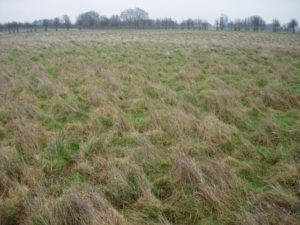Update: Ecotricity has now sent us a response to our briefing, which we have published in full, with our own comments (in a different colour) under each of Ecotricity’s points. Please click here to read this conversation.
Summary:
Ecotricity has recently been granted planning consent for the UK’s first biomethane plant using grass as the main feedstock. The company claims that such “green gas from grass” can replace 97% of natural gas for domestic heating and hot water by 2035, and remove the “need” for fracking, whilst helping restore biodiverse flowering grasslands. This report critically examines Ecotricity’s claims.
It calculates that replacing current domestic natural gas use with biomethane made from grass would require an area of 10.2 million hectares, which is 59% of the UK’s entire agricultural land. This area is equivalent to 92% of existing grassland in the UK, most of which is used for grazing. Such a large-scale grass-to-biomethane programme would therefore all but end livestock grazing and make the UK almost entirely dependent either on meat or dairy imports, or on animal feed imports for domestic factory farming. The greenhouse gas emissions from indirect land use change will be very considerable, and could be far greater than the CO2 emissions saved by burning less natural gas.
This, however, is not the only climate-related concern: firstly, upgrading biogas to biomethane requires the CO2 contained in the biogas (which comes from the carbon in the grass )– up to 45% of the total volume – to be emitted straight into the atmosphere, without burning. Secondly, and more worryingly, both biogas digestion and upgrading to biomethane are associated with methane leaks. Depending on the scale of those leaks, biomethane could have a seriously adverse climate impact. Little data exists about actual methane leakage rates from such plants. Biogas and biomethane plants using grass, i.e. a non-waste feedstock, do not require an environmental permit and there is no requirement to reduce or prevent methane leakage, nor to monitor it.
Finally, the report looks at Ecotricity’s biodiversity claims. Grasslands could in theory be managed for wildlife while supplying a biogas/biomethane plant. Maximising yields, however, will require sowing ‘optimised’ rather than diverse grass mixtures, using herbicides and fertilisers, and cutting grass more often and at different times than is beneficial for wildlife. Those claims by Ecotricity thus cannot be substantiated either.

